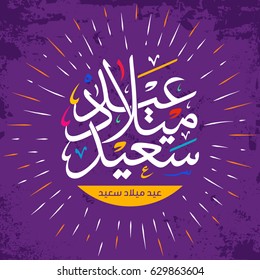


Restaurants also offer freebies or saabisu (サービス) for customers who come and dine on their birthday, usually in the form of desserts. Like most kids’ birthday parties, classmates and friends are also invited. Sweet, right? For families, especially for young children, parents take care of the party planning, decorations, food, and gifts.

In some cultures, the birthday celebrant must treat the guests on their special day, but in Japan, it’s more common to see friends or family plan and prepare for someone’s birthday party!Ĭouples usually spend their birthday with their partner. How do Japanese people celebrate birthdays? Kore kara mo (これからも) translates to ‘even after this’. To wish someone to continue being healthy after their special day, this is another thoughtful phrase you can use! Kore kara mo douzo ogenki de ite kudasaiīeing healthy and happy doesn’t end at the last second of someone’s birthday. Subarashii (素晴らしい / すばらしい) is another word that translates to ‘wonderful’ while ichinen (一年 / いちねん) means ‘one year’. This one is a bit more formal than the previous phrase, so it is appropriate to use this one in the workplace. You can replace suteki na with other adjectives, such as tanoshii (楽しい / たのしい), which means ‘fun’! Subarashii ichinen ni narimasu you ni The phrase translates to “Please spend / please have a great/wonderful birthday”! Meanwhile, ichinichi (一日 / いちにち) means ‘one whole day’. Suteki na (素敵な / すてきな) is an adjective that translates to ‘lovely’ or ‘wonderful’. This is one way to express your kind wishes to a birthday celebrant! Suteki na ichinichi wo can be used among friends, family and even co-workers.
#Happy birthday song in arabic how to
Want to learn how to read Japanese? Download your free hiragana and katakana workbook here! Suteki na ichinichi wo This greeting is an English loan word, which is why it is written in the Japanese script called katakana! Happii basudee is pronounced with a Japanese accent and is an extremely casual way to greet your friends and family on their birthday.
#Happy birthday song in arabic full
Otanjoubi omedetou (お誕生日おめでとう / おたんじょうびおめでとう) – polite (but slightly less formal than the full version, otanjoubi omedetou gozaimasu).Using the greeting this way is appropriate for most people, but for people you are closer to, you might like to use one of the following, less formal, variations: Here it is used to make your greeting even more respectful! Gozaimasu (ございます) is basically a very polite version of the verb ‘to be’. The ‘o’ is called an ‘honorific prefix’, and you can learn more it here. One way to make a native Japanese noun polite is to add an ‘o’ (お) before it, just like in o-tanjoubi (お誕生日 / おたんじょうび). You might notice that there is a slight difference in how tanjoubi is used here: in Japanese grammar, there is a concept called ‘polite speech’ or keigo(敬語 / けいご). Omedetou (おめでとう) means ‘congratulations’ or ‘best wishes’. The word for ‘birthday’ in Japanese is tanjoubi (誕生日 / たんじょうび). Here are a few Japanese birthday wishes to try. There are many ways to wish your friends, family, and even coworkers a happy birthday in Japanese! You can use them in a conversation or even as a message in a birthday card. Celebrations for the elderly (ages 60 and above).How do Japanese people celebrate birthdays?.Kore kara mo douzo ogenki de ite kudasai.Suteki na otanjoubi wo sugoshite kudasai.


 0 kommentar(er)
0 kommentar(er)
